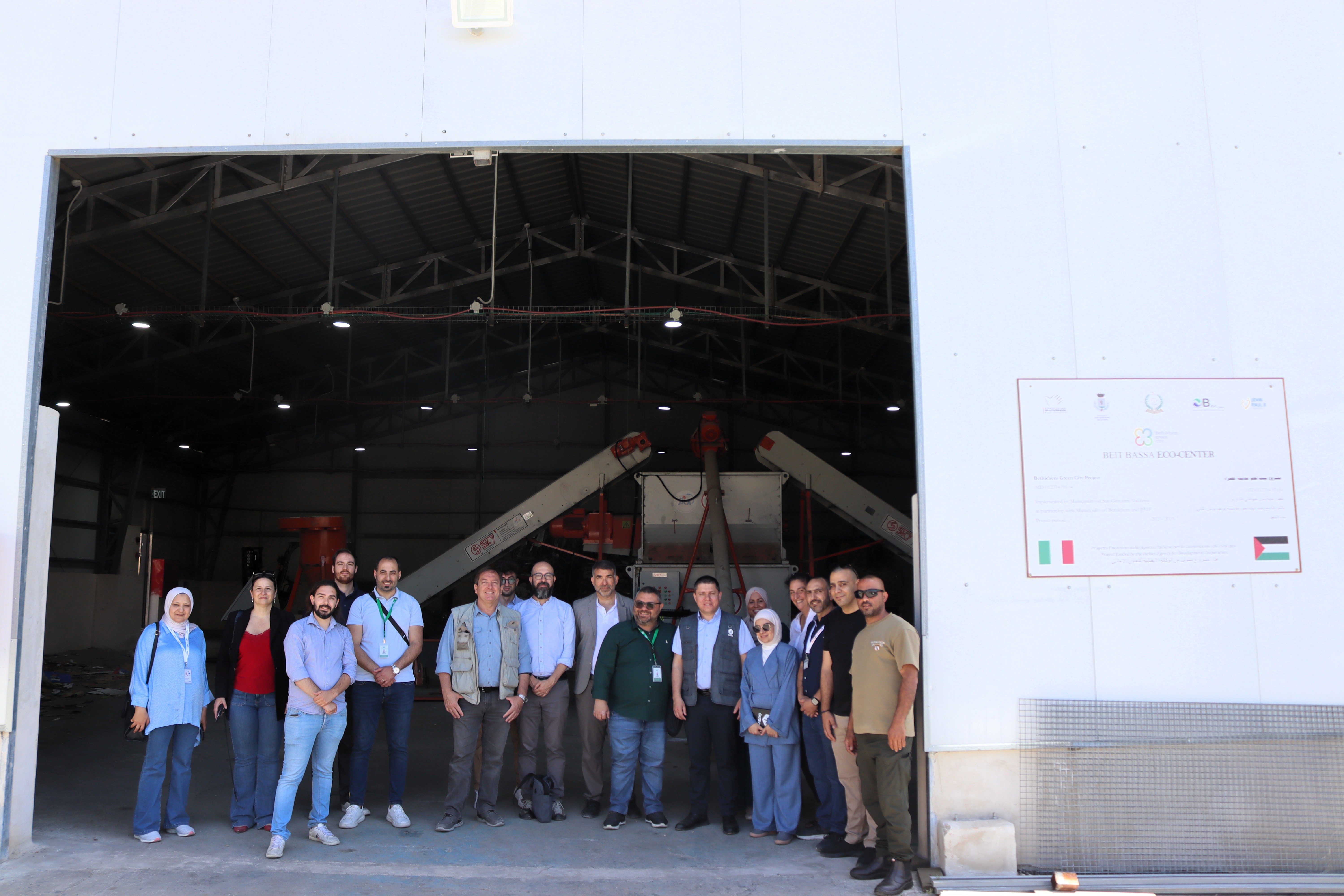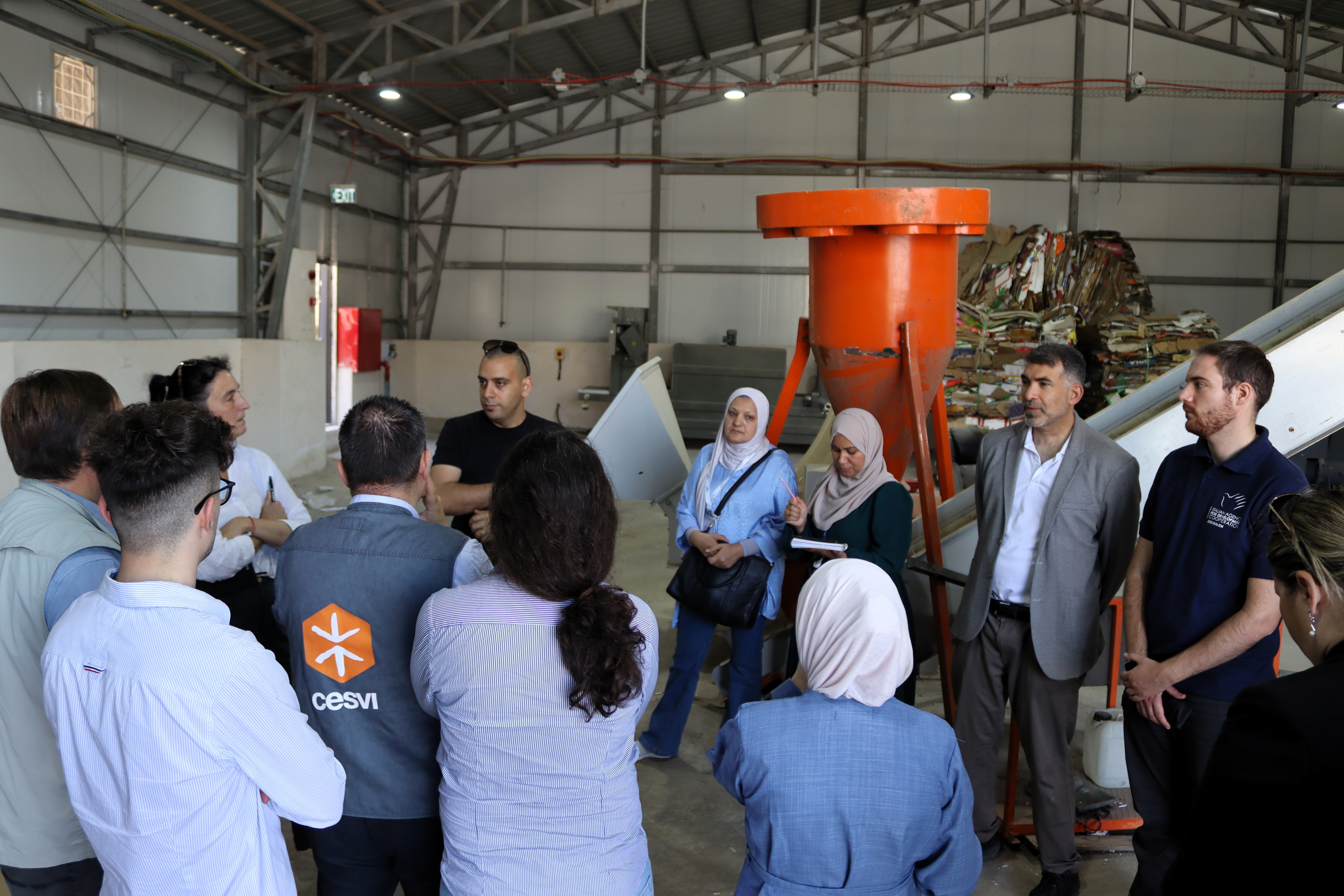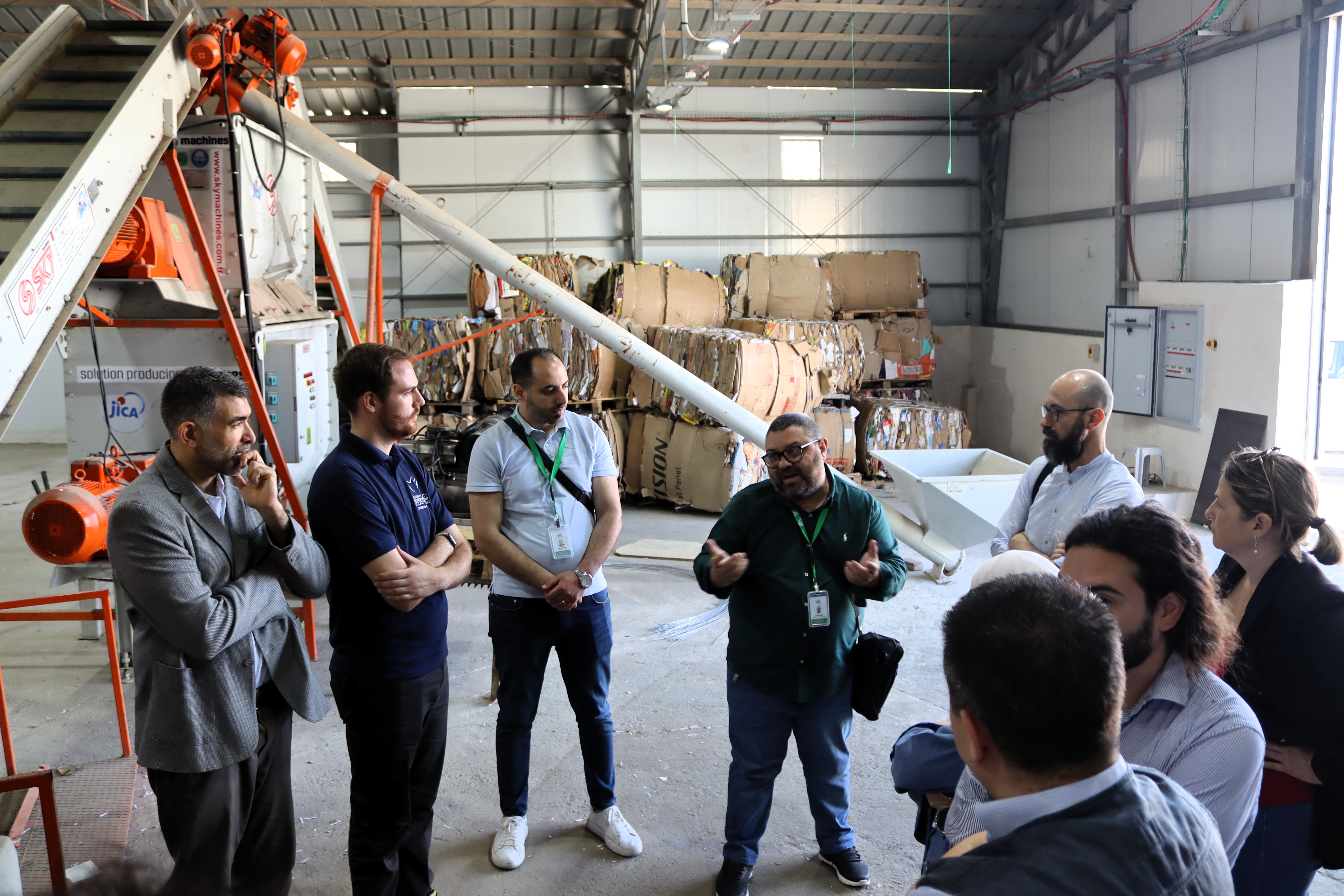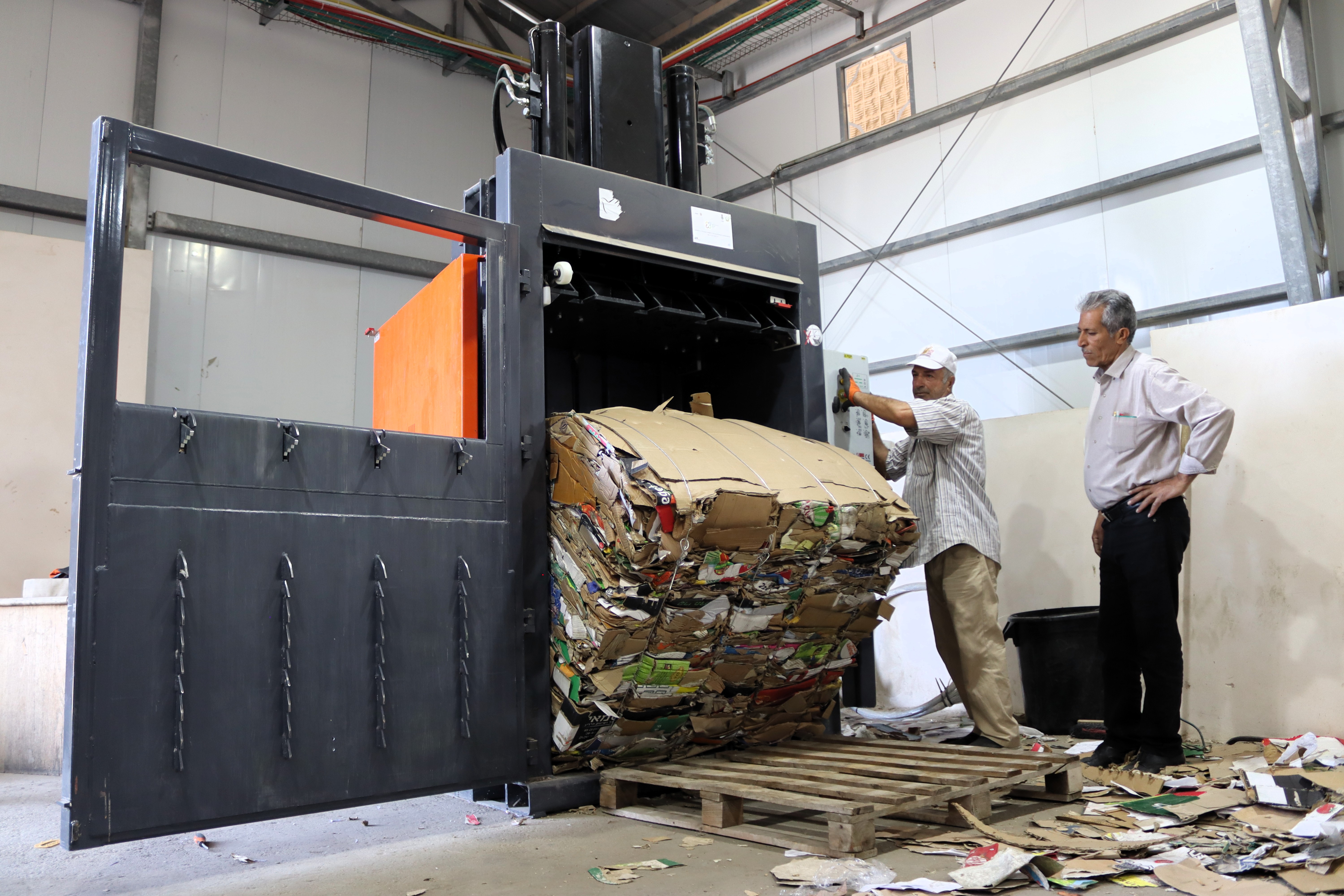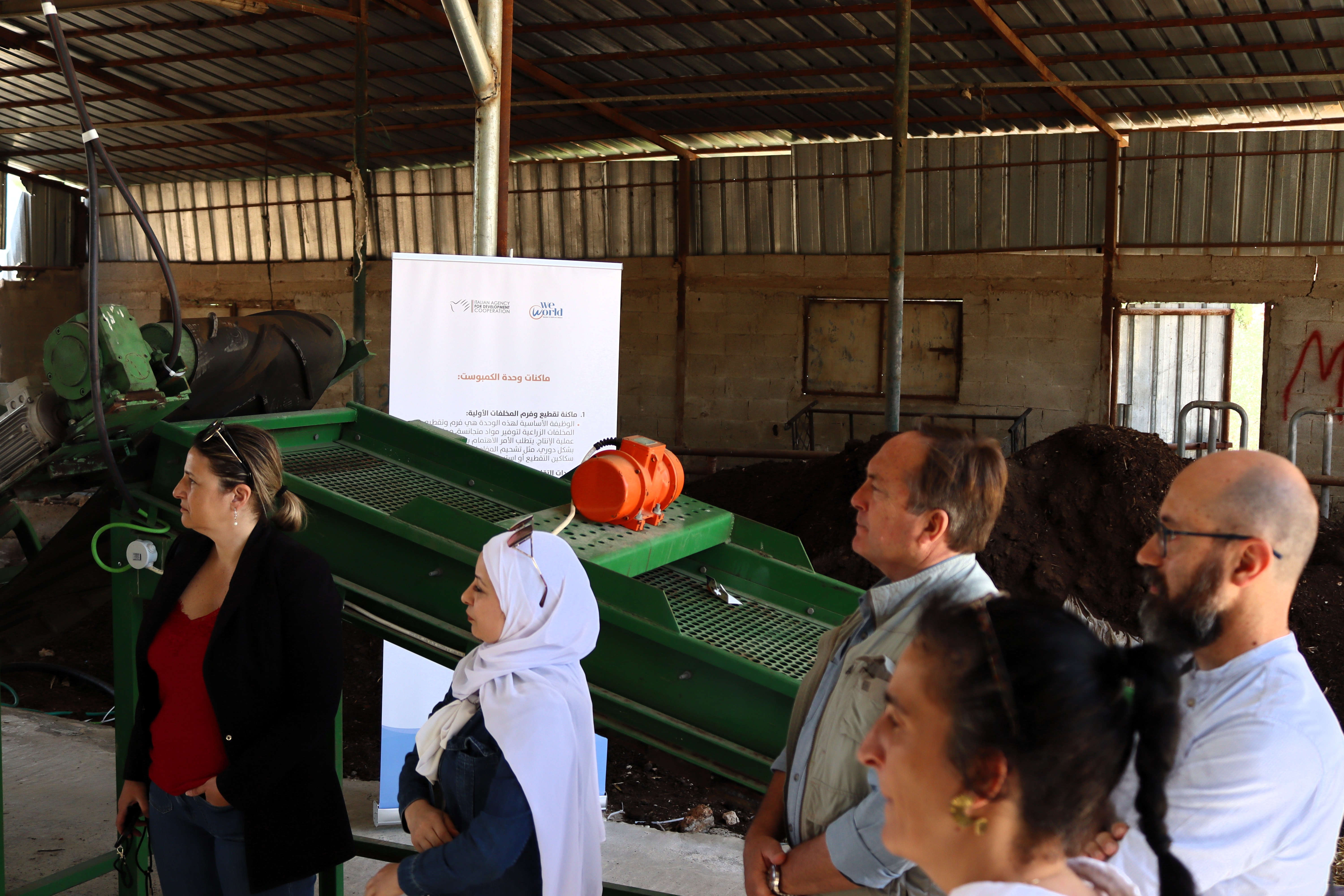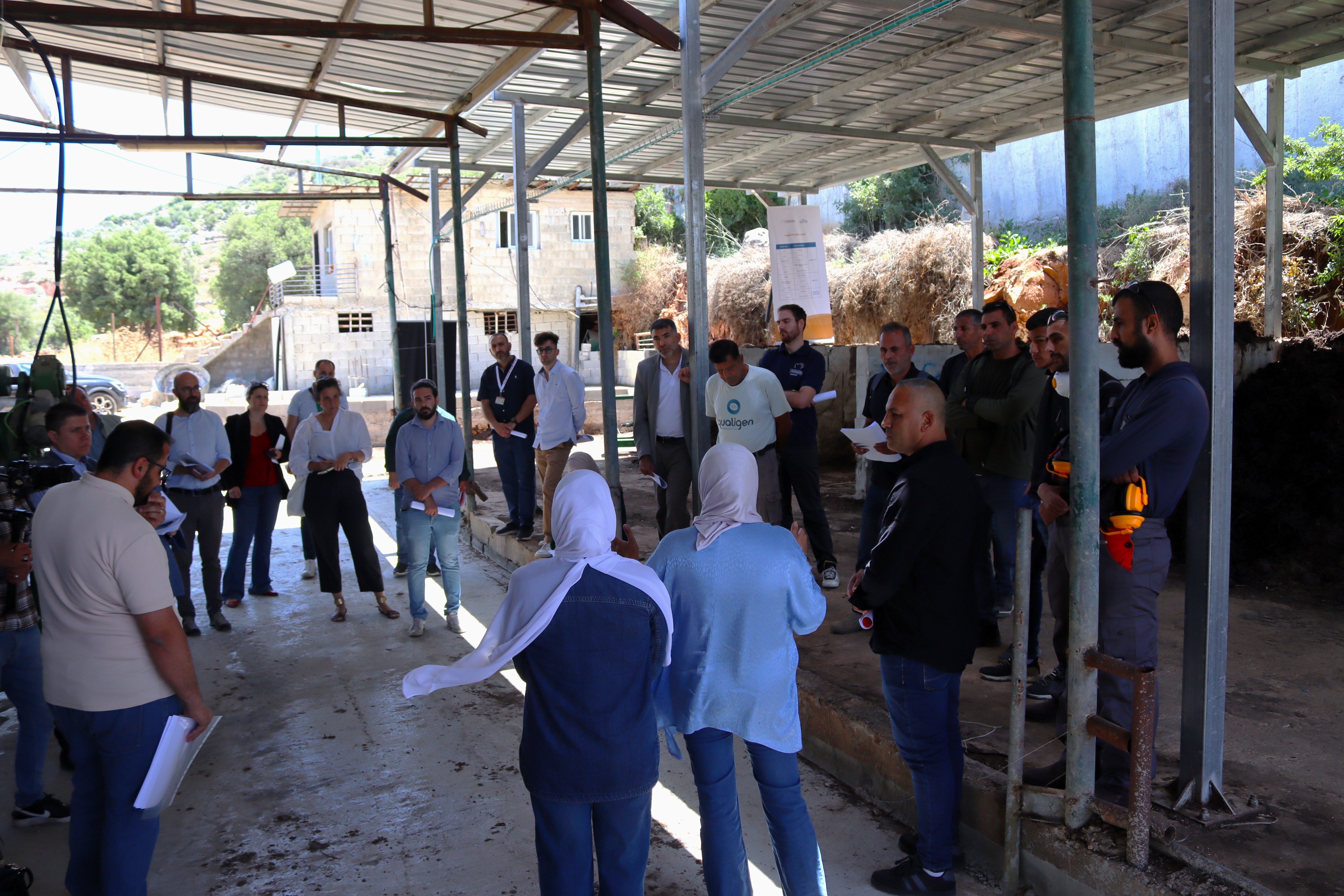May 28, 2025 – A delegation representing AICS, CESVI, WeWorld, JICA, Enabel, VIS, Bethlehem University, John Paul II Foundation, and Overseas conducted a joint field visit to the Eco Centre in Bethlehem and the composting facility in Wadi Fukin. The purpose of the visit was to observe and evaluate recent projects funded by AICS in the field of circular economy and solid waste management, while also fostering networking, knowledge exchange, and the sharing of lessons learned among participants.
The Eco Center, developed under the “Bethlehem Green City” project, funded by AICS and implemented by the municipality of San Giovanni Valdarno in partnership with the John Paul II Foundation. Although operational for only three months, the Centre is already showing strong potential as a hub for sustainable waste management solutions. During the visit, Bethlehem Municipality staff provided a live demonstration of the vertical baler, a machine that compresses cardboard, mostly collected from Bethlehem Central Market, into compact bales. The baler can process half a ton of cardboard in just 2–3 hours. Attendees observed the machine in action and received a detailed explanation of its technical operation. In addition, the EcoCentre now houses an innovative production line for briquettes made from a mix of cardboard, pruning waste, and olive pomace. This line was supplied by JICA and production is expected to begin with the upcoming olive season. The project team, together with key stakeholders, also addressed ongoing challenges, particularly the need to raise public awareness regarding solid waste management practices.
The second stop was Wadi Fukin, a village renowned for its strong agricultural traditions and community-based development. Since 2022, the community has prioritized projects that enhance essential services and support sustainable agriculture, recognizing composting as a key pillar of sustainable rural development. As part of the project “Promoting Opportunities for Nexus-Oriented Territorial Empowerment and Economic Resilience“, also funded by AICS through an LRRD programme and implemented by WeWorld, an organic composting facility was established for the local farmers’ cooperative. The plant and its operations are closely monitored through weekly visits by local experts to ensure ongoing efficiency and functionality. The farmers’ cooperative is expected to produce approximately 40 tons of compost annually.
